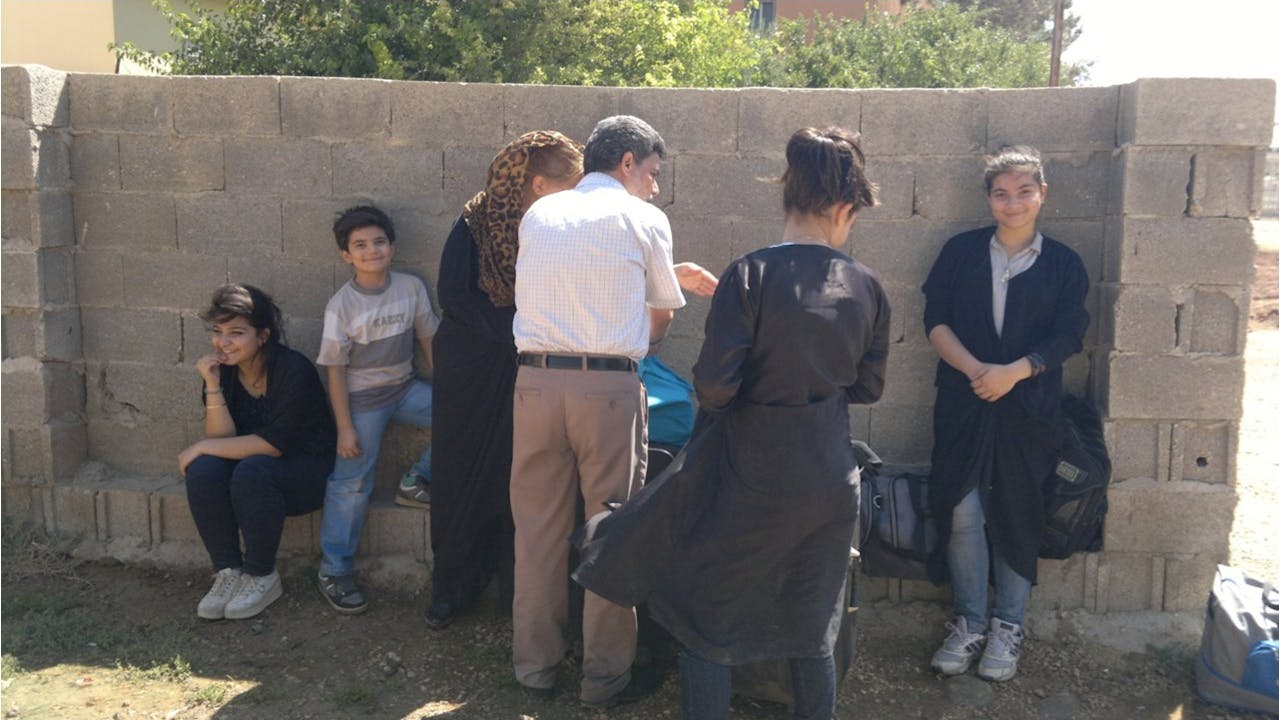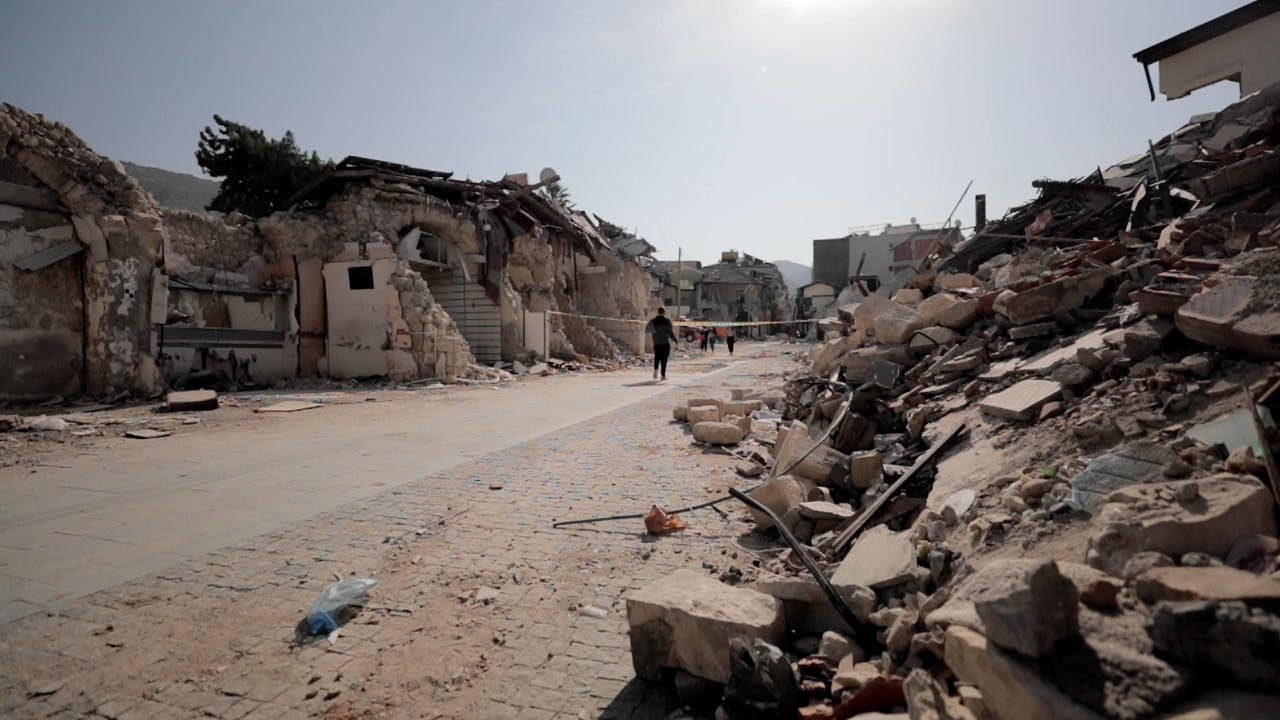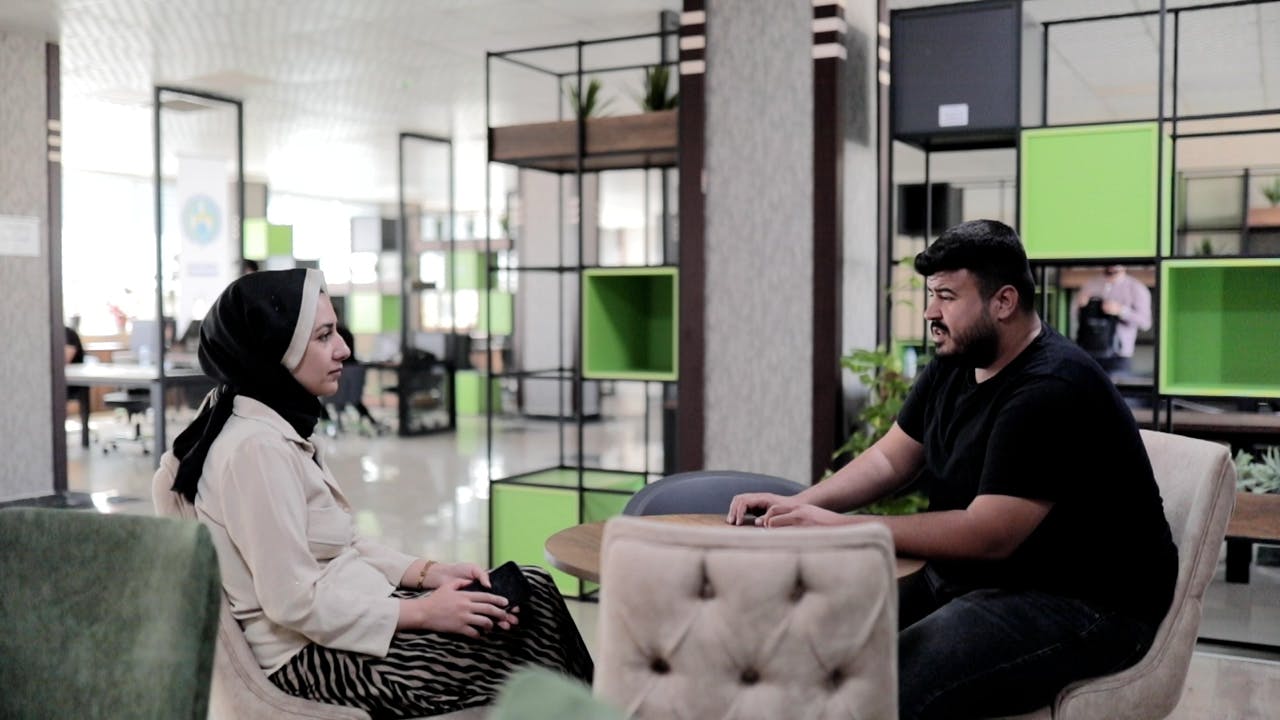When multiple earthquakes hit Türkiye and Syria on February 6, 2023, I was determined to help survivors with their mental health through my platform Peace Therapist. I know first-hand what it is to experience trauma. I was 16 when my family fled the war in Syria and became refugees in Türkiye.
I grew up in Raqqa city in Syria. When the war started, we had no idea how bad things would get.
One night ten years ago, planes dropped a bomb on a building 200 metres from our house. Within 10 minutes we were in the car in our pyjamas. My father drove at full speed to get us out.
We crossed the Turkish border and received news that our house and those of our neighbours and relatives had been destroyed.
I thought we were safe because we had left Syria, but although the war was over on the outside, I soon realised a war had just begun inside of me. I had psychological problems, and I wasn’t able to leave the house for a whole year.
My family was a huge support. As I slowly recovered from this horrific experience, I started to see my surroundings in a different way. I realised that hundreds, thousands, maybe millions of refugees like me were also experiencing difficulties.

My family on our first day in Türkiye after we fled our home in Raqqa, Syria. I am on the right. I was relieved that we were safe, but the war had also left me traumatised. (2014)
© Jin DawodI was looking for a way to re-connect with life and I decided to continue my education. I went to university and studied computer engineering. I also took courses in entrepreneurship.
At the first training, the instructor explained what entrepreneurship was for and how you create a project that makes people’s lives easier. It was while he was explaining this that I dreamed up Peace Therapist.

Peace Therapist is an online platform and social enterprise that matches psychologists with people who need psychological support. I run it with a small team and have a database of over 100 psychologists. (2023)
© ILO/OIT Bülent KulfelPeace Therapist is an online platform which I designed, built and now run. It matches psychologists with those who need psychological support.
I was only in my second year at university when I set it up. Many people tried to dissuade me. They said it wouldn’t be possible because I was a woman and a refugee.“You don’t even speak Turkish,” they said. “You can’t do it.” But I carried on with my plan and today Peace Therapist is an award-winning social enterprise.
I wanted to focus on the problems that Syrian refugees face. Peace Therapist is the first platform in Türkiye to also provide therapy in Arabic.

We evaluate people according to the psychological expertise they need, providing both individual and group therapy.
The services are available in people’s native languages, including Arabic, English, Kurdish and Turkish. I wanted to focus on the problems that refugees face, and we are the first platform in Türkiye to also provide therapy in Arabic.

The earthquakes on February 6, 2023, were devastating. More than 50,000 people were killed and around 107,000 were injured. We immediately began to provide emergency psychological aid to people in the earthquake zone. (2023)
© ILO/OIT Bülent KulfelWhen the earthquakes struck, we understood the magnitude of the event because we ourselves at Peace Therapist were based in the area where they took place. From the very first day, we opened all our services free of charge with a team of volunteer psychologists.
Then, in collaboration with the International Labour Organization (ILO), we were able to reach even more people, including by telephone and remotely via the platform. This was important because many people had lost their homes and they needed an easy way to reach us. Between March and December Peace Therapist provided psychosocial support to 3445 people.
Over half of our clients are Syrian refugees. Many have not yet overcome the trauma of war let alone the trauma from the earthquake, and they have needed extra therapy sessions.

We want to provide psychological therapy to as many earthquake survivors as we can. (2023)
© ILO/OIT Bülent KulfelIn this part of the world psychological therapy can be considered shameful. We put a lot of thought into how we approach people, so they are less fearful of reaching out for help.
We never describe someone as a patient who is sick, we simply call them a client. Some of our group therapies are re-branded as self-confidence and awareness-raising training. People can also obtain therapy anonymously, which has appealed to women refugees in particular.
We also reach people by running seminars, workshops, and different social activities, including sharing job openings on a Whatsapp group called “Peace Therapist Opportunities”.
One of our clients, who is a refugee, had a phobia of going out in public and it was preventing him from finding employment. After nine therapy sessions, and through volunteering work which helped him regain his self-confidence, he found a job.

My goal is to work for peace and create solutions to conflicts. We know that nearly 1 in 4 refugees worldwide who have experienced war have psychological problems. If we help them improve their lives and gain self-confidence, we will increase social cohesion between refugees and host communities.
When we started our cooperation with the ILO, there was a 34-year-old refugee man, whom I remember in particular. He had a phobia of going out in public and it was preventing him from finding employment. After nine therapy sessions, and through volunteering work which helped him regain his self-confidence, he found a job. He told us afterwards that he wished he had come to therapy sooner and that “I feel like I’m meeting myself again.”
When I look back at my 16-year-old self, a young refugee traumatized by the war in Syria, I know a platform like Peace Therapist could have helped me and that’s what motivates me now. If we have the chance to change the life of even one person, then that is enough for me.
